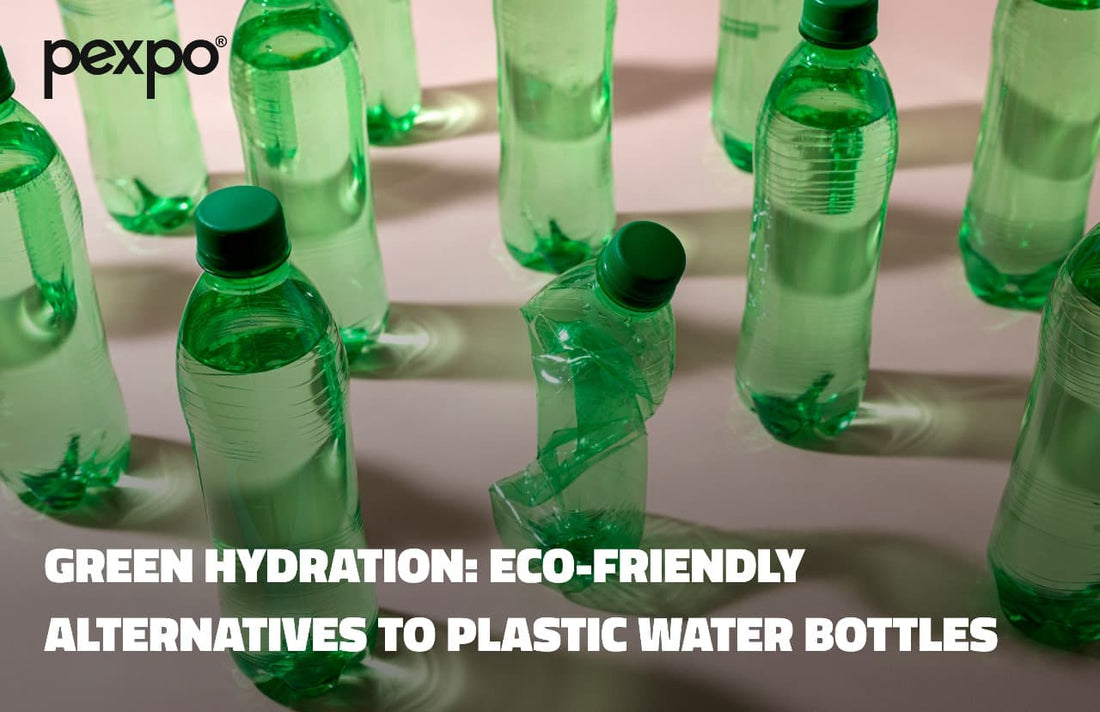Imagine a world where the water we drink is chemically polluted, marine life suffering from ingesting microplastics, and beaches filled with plastic trash. This uncomfortable fact is happening right now; it is not hypothetical. We all add to this problem with every plastic bottle we use. Plastic is made annually in excess of 460 million metric tons. Our natural ecosystem still holds 79% of all plastic ever made.
Problem with Plastic Water Bottles
While they do provide convenience, plastic water bottles also contribute to the problems. Examining the consequences in further detail;
Environmental Impact: The 450-year breakdown time of plastic bottles causes landfill congestion and ocean contamination. Marine life is endangered by eating or getting caught in plastic trash.
Health Concerns: The BPA in water bottles may seep into our drinking water, causing imbalances and other health problems including cancer, obesity, miscarriages, infertility, and neurological problems.
Resource Drain: Producing plastic bottles demands amounts of fuels and water resources putting strain on our environment.
Moreover plastic pollution tarnishes nature and harms industries such as fishing and tourism.
It becomes necessary for us to move toward alternatives in front of these difficulties.
Eco-friendly alternatives to plastic water bottles
There are workable, eco-friendly alternatives to plastic water bottles to lessen this issue. Listed below are some sustainable choices:
#1. Reusable Stainless Steel Bottles:
Among the greatest substitutes for plastic bottles, stainless steel bottles are very robust and long-lasting. Their long-lasting ability to keep your beverages hot or cold and absence of dangerous chemicals lessens the demand for single-use plastics.
#2. Glass Bottles:
They are easy to clean and non-reactive; they won't take up flavors or odors from your drinks. While glass bottles might be heavier and more brittle than other options, several manufacturers now provide silicone coverings to prevent them from shattering.
#3. Bamboo Water Bottles:
These light-weight, disposable bottles are made of natural bamboo. People who enjoy being close to nature and who want to look distinctively earthy will find them perfect. Bamboo bottles must be carefully cared for, nevertheless, in order to avoid mold development.
#4. Folding Silicone Bottles:
These are excellent bottles when one wishes to save space. As they can be rolled or folded up when empty, they are perfect for outdoor activities and travel. Reusable, flexible, and simple to clean. These bottles' inventive shapes make transporting water simpler than with bulky conventional bottles.
#5. Organic Biodegradable Bottles:
Using two renewable resources, sugarcane and corn starch, these plant-based biodegradable bottles are creative and good for the environment. These bottles have less of an environmental impact since they degrade faster than regular plastic bottles. For people who prefer convenience of single use, they provide a sustainable alternative to glass or stainless steel bottles, but maybe less sturdy.
Tips for selecting Eco-Friendly Alternatives to Plastic Water Bottles
Think on the following while choosing eco-friendly alternatives to plastic water bottles:
Material Safety: Make sure the bottle doesn't have any dangerous substances like BPA.
Durability: Pick a bottle robust enough to be used every day.
Cleaning Ease: Use an easily cleaned container to prevent bacteria growth.
Cost: While many environmentally friendly bottles may be more expensive initially, they ultimately pay for themselves.
Lifestyle requirements: Think on what you really need, whether it's for vacation, outdoor activities, or business use.
More advice for cutting down on plastic trash
There are additional ways to reduce plastic waste even though using eco-friendly alternatives to plastic water bottles is a great place to start. With a water filter installed at home, you may totally do away with the need for bottled water. Encouragement of more refill stations to be placed in public spaces can also assist individuals in staying hydrated without consuming single-use water bottles. Finally, you may participate in or plan community clean-up events to lessen the amount of plastic trash in your neighborhood.
Conclusion
Changing from plastic to environmentally friendly water bottles is a simple and doable approach to reduce your environmental impact. Reusable alternatives like glass, silicone, bamboo, stainless steel or bottles made of plants can reduce the amount of plastic waste and advance environmental sustainability. As every little adjustment adds up, why not get started right now? Encourage people to choose sustainable alternatives to your plastic bottle. We are able to change things when we work together.
Making the switch to environmentally friendly products enhances your life by providing long-lasting, secure, and fashionable options that also benefit the environment. Let us thus accept the challenge and dedicate ourselves, one bottle at a time, to a better future.

